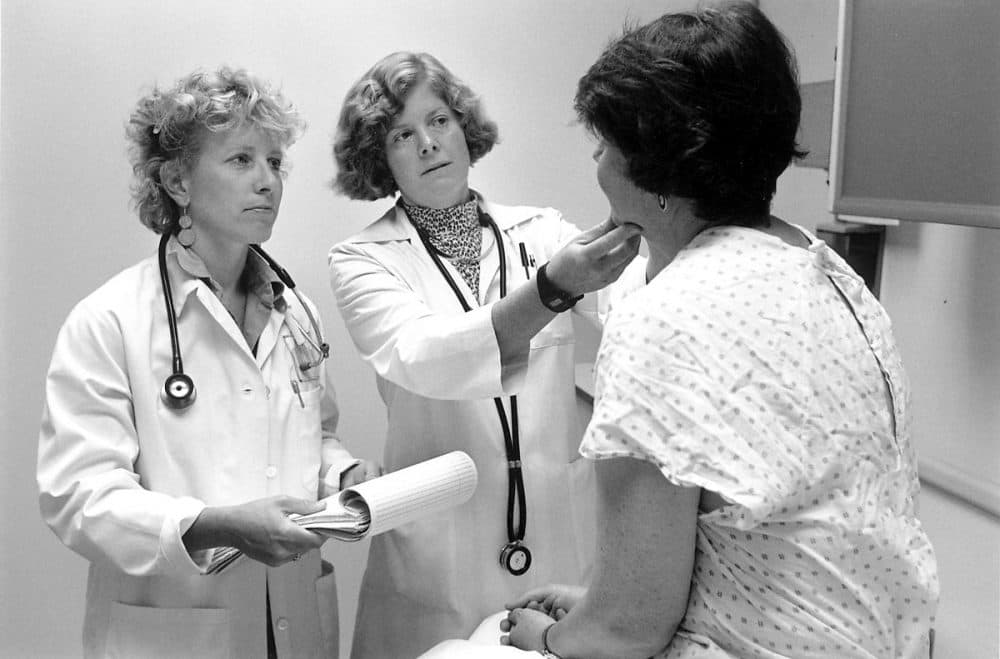Advertisement
Harvard Study: Elderly Hospital Patients Live Longer, Do Better With Female Doctors

The usual feminist slogan is "Equal pay for equal work." But if you read a new study led by researchers at the Harvard T.H. Chan School of Public Health, you may conclude that for female physicians, maybe the slogan should be "Equal pay for better work."
Because what it found is that among elderly Medicare patients in hospitals, female doctors tended to get better results. Their patients were likelier to live longer and less likely to land quickly back in the hospital.
The study analyzed records on more than 1.5 million hospitalizations of Medicare patients over four years, and it included more than 58,000 doctors, of whom nearly one-third were women. It looked at "30-day mortality" — whether patients died within 30 days of being treated — and whether they landed right back in the hospital.
Senior author and Harvard professor Dr. Ashish Jha, director of the Harvard Global Health Institute, sums up the results: "We found that when patients are hospitalized, when they receive care from a female physician, they're more likely to survive, and they're less likely to come back, than when their doctor is a man."
The effect wasn't huge. For example, the 30-day mortality rate was 11.07 percent for female physicians, compared with 11.49 percent for males, and the research found a similar gap on landing back in the hospital.
But the researchers projected out that gap for the general population and, Jha says, "We found that if male physicians achieved the same outcomes as female physicians, that would lead to about 32,000 fewer deaths every year. That's about the number of people who die in motor vehicle accidents. So from a public health point of view, it's important."
The study did not explore what the female doctors might be doing differently, but past research suggests that they are likelier to follow clinical guidelines and adhere to evidence-based medicine.
Jha says there's also some evidence from other industries that men are more likely to take risks, which could explain why the benefit of having a female doctor is especially pronounced in sicker patients. Research also finds that female doctors tend to be more effective at communicating with patients.
Might some unmeasured factors have tipped the study's scales? Perhaps male physicians' patients tend to be somehow different from female doctors'? The researchers used multiple methods to try to control for such potential confounders, Jha says. One angle: They looked at hospitalists, doctors who work in hospitals on shifts and are thus assigned patients largely at random, based only on where and when they work.
"And everywhere we looked, we found pretty consistently the same effect," Jha says. "And so I feel pretty confident that these findings are probably real."
The findings are also particularly striking given previous studies that found gaps in pay and promotions for female physicians. The pay disparity has been found within a given specialty, not just among specialties. Debates over those gaps have included some suggestions that female physicians may earn less because their work is somehow less valuable or not as good.
"Some of the reasons that have been given as rationalization for those differences are that the quality of women's work, for reasons related to child-bearing or more likely to work part-time, was lower," says Dr. Rita Redberg, the editor of JAMA Internal Medicine, in the journal's podcast. "And so certainly this study goes a long way to dispelling that rationalization."
Or as Jha puts it: "It's really important that this study says, 'No, no, despite that backdrop of lower salaries and less academic promotion, we're finding that not only are women physicians just as good, in fact we're finding that they're a little bit better.' "
